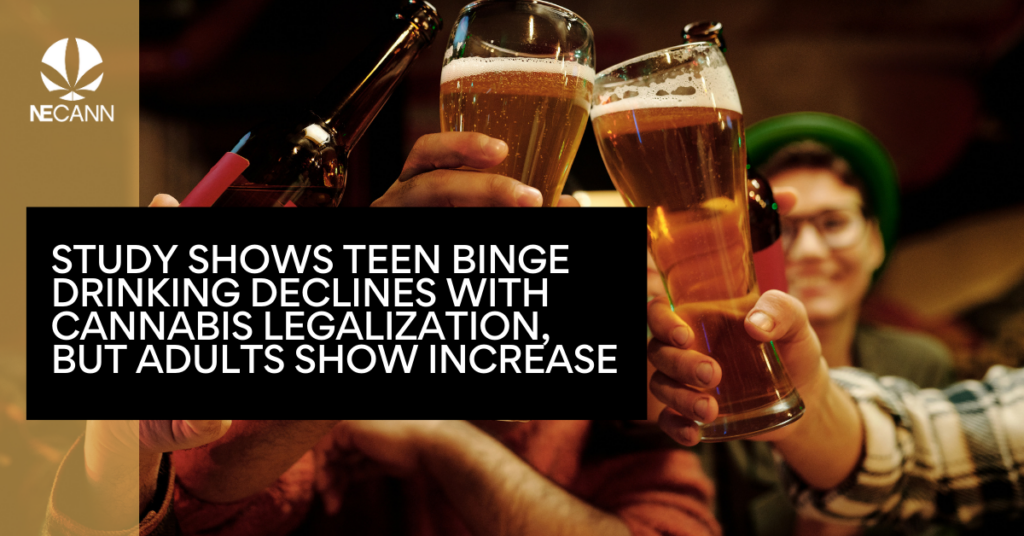A recent study examining the relationship between adult-use cannabis laws and binge drinking habits reveals interesting findings. The study, titled “Recreational cannabis legislation and binge drinking in U.S. adolescents and adults,” utilized data from the National Survey on Drug Use and Health spanning from 2008 to 2019.
The researchers observed a decline in overall binge drinking rates among individuals aged 12 to 20 (17.54% to 11.08%) and those aged 21 to 30 (43.66% to 40.22%) during the study period. However, an increase in binge drinking was noted among adults aged 31 and older, with rates rising from 28.11% to 33.34% for individuals aged 31-40, 25.48% to 28.32% for those aged 41-50, and 13.28% to 16.75% for individuals 51 and older.
The study revealed that after the passage of adult-use cannabis laws, binge drinking habits among individuals aged 12 to 20 decreased by 4.8%. This suggests a potential association between the availability of legalized cannabis and reduced binge drinking among teenagers.
The researchers emphasize the importance of efforts to minimize harms related to binge drinking, particularly as the landscape of cannabis legislation continues to evolve in the United States. They acknowledge that current evidence on the link between recreational cannabis laws and binge drinking is limited to data from a few states and small study samples. However, their study sought to contribute to the existing literature by utilizing nationally representative data and a comprehensive measure of state alcohol policies to account for variations in state contexts.
The findings of this study shed light on the complex relationship between cannabis legalization and alcohol consumption patterns. While the legalization of cannabis appears to correlate with a decline in teen binge drinking, it also suggests an increase in binge drinking among adults aged 31 and older. Further research and analysis are necessary to better understand the underlying factors driving these trends.
As the debate surrounding cannabis policy reform continues, policymakers and public health officials must consider the potential implications for alcohol-related behaviors. Understanding the impact of changing cannabis policies on various age groups can inform targeted interventions and harm reduction strategies to address binge drinking and promote responsible substance use.
In conclusion, this study highlights the need for ongoing research and evidence-based approaches to ensure that the evolving cannabis policy landscape minimizes potential harms associated with binge drinking across all age groups. By fostering a comprehensive understanding of the relationship between cannabis legalization and alcohol consumption, policymakers can work towards creating effective strategies to promote public health and safety.




